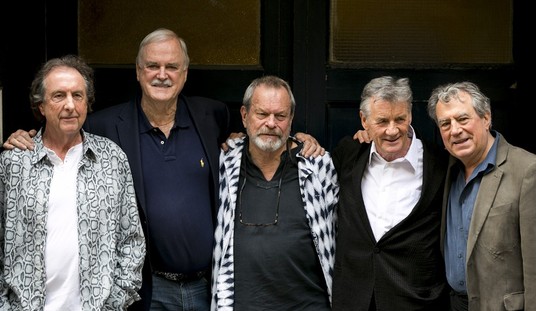The Washington Post says that classified materials remain strewed across the wreckage of the U.S. consulate in Benghazi.
More than three weeks after attacks in this city killed the U.S. ambassador to Libya and three other Americans, sensitive documents remained only loosely secured in the remains of the U.S. mission here on Wednesday, offering visitors easy access to delicate details about American operations in Libya.
Documents detailing weapons collection efforts, emergency evacuation protocols, the full internal itinerary of Ambassador J. Christopher Stevens’s trip and the personnel records of Libyans who were contracted to secure the mission were among the items scattered across the floors of the looted compound when a Washington Post reporter and a translator visited Wednesday.
The only security on the site was provided by the landlord.
Two private security guards paid for by the compound’s Libyan owner are the only people watching over the sprawling site, which is composed of two adjoining villa complexes and protected in some places by a wall only eight feet high.
“Securing the site has obviously been a challenge,” said Mark Toner, deputy spokesman at the State Department, in response to questions about conditions at the Benghazi compound. “We had to evacuate all U.S. government personnel the night of the attack. After the attack, we requested help securing the site, and we continue to work with the Libyan government on this front.”
Meanwhile the FBI has still not received permission from Libyan authorities to fly to the scene as the administration arranges for a politically acceptable way to round up the suspects.
Officials are now briefing American newspapers that they are compiling dossiers on individual militants thought to have been involved in the attack and weighing up possible responses, including drone strikes and special operations raids, as well as joint operations with the Libyans.
Unilateral American action would risk a backlash, but if the Libyans are unable to arrest those responsible Mr Obama would find it hard not to act.
In the meanwhile, witnesses who are unable to give their statements to the FBI are giving them to the press. “Three weeks after the attack that killed four Americans in this city, the investigation of its causes remains in its initial stages, with just a handful of suspects detained, the crime scenes minimally secured and Walid Faraj waiting for a phone call from someone, anyone, asking him what he saw on the night he was injured while protecting the U.S. diplomatic post here.”
Faraj, a member of the militia that local officials tasked with securing Americans in Benghazi, said he saw the attack nearly from start to finish. But neither American nor Libyan investigators have paid him a visit, even as he fears that the perpetrators know who he is.
Why would he think that al-Qaeda had his number or knew where he was? “Since that day, nobody has called, nobody cared,” said Faraj, 28, who lost a tooth in the attack and whose legs are peppered with small wounds from the firefight. “How is it the Americans didn’t anticipate anything?”
My advice to Faraj. Go back to Bulgaria.
[poll id=”16″]
Belmont Commenters
How to Publish on Amazon’s Kindle for $2.99
The Three Conjectures at Amazon Kindle for $1.99
Storming the Castle at Amazon Kindle for $3.99
No Way In at Amazon Kindle $8.95, print $9.99










Join the conversation as a VIP Member